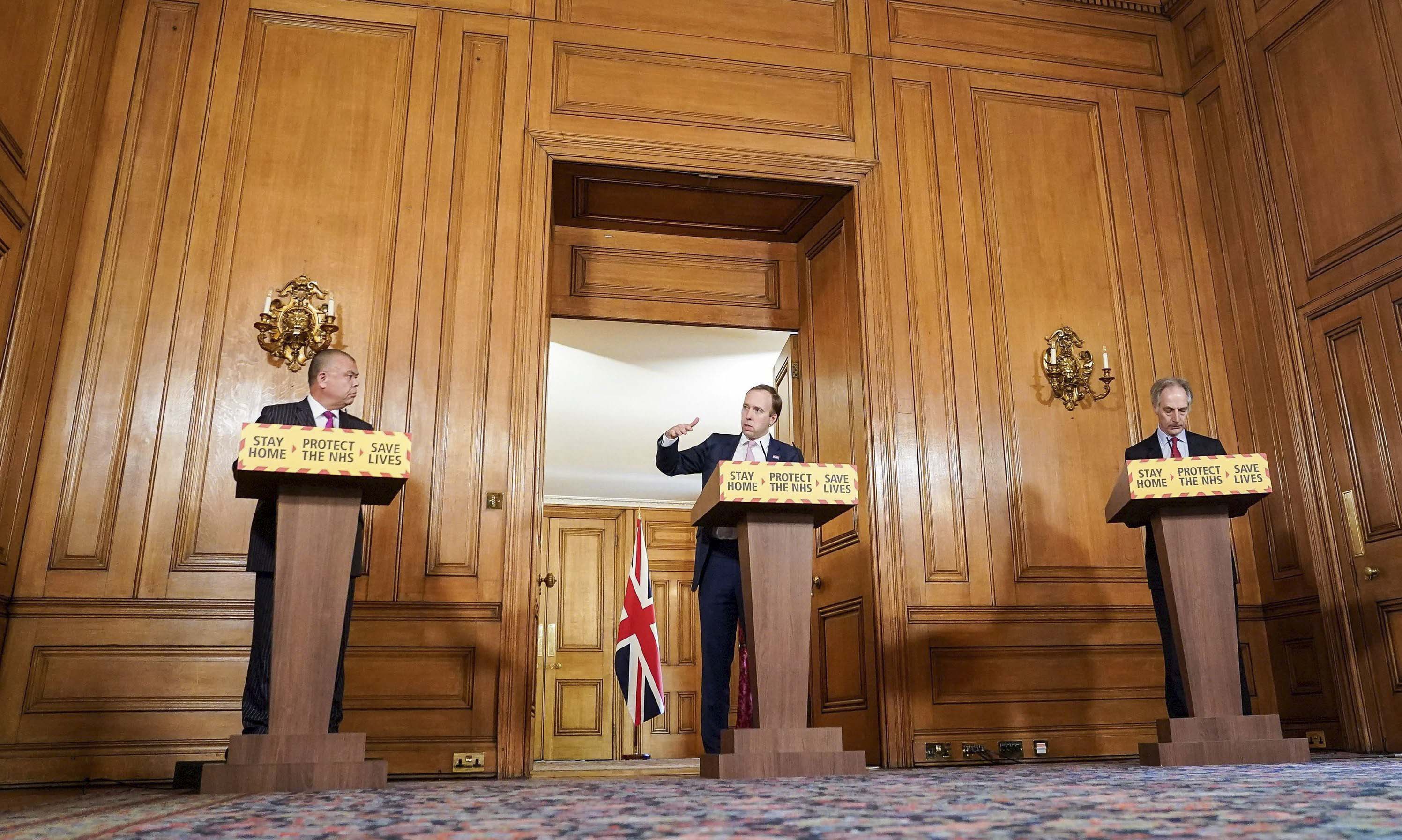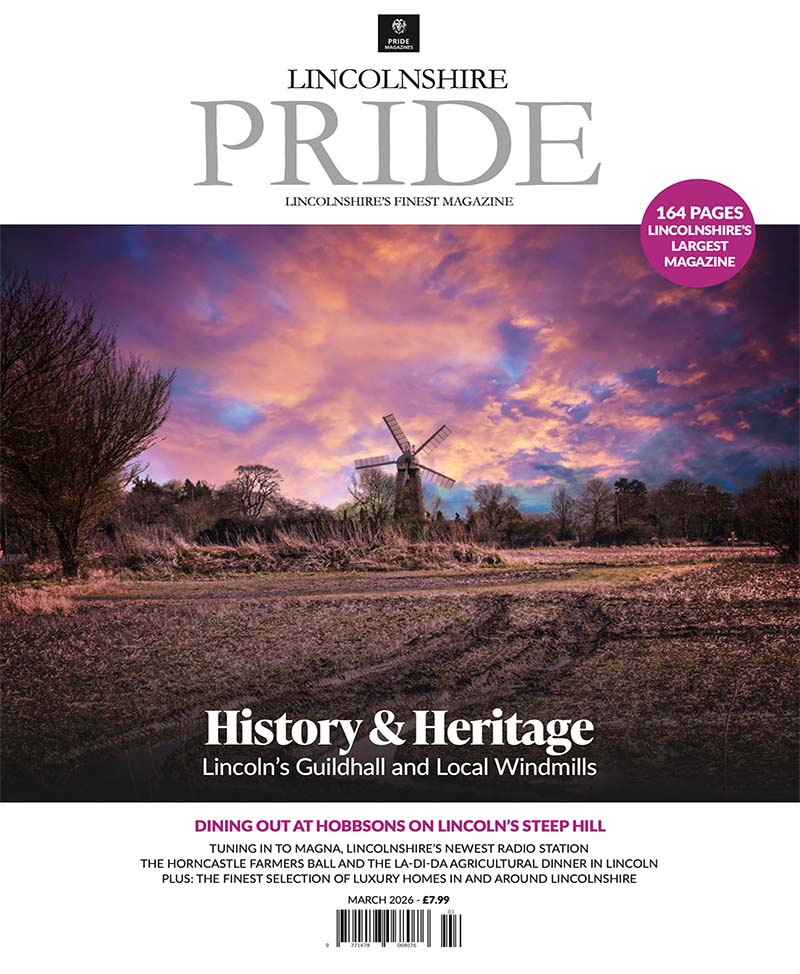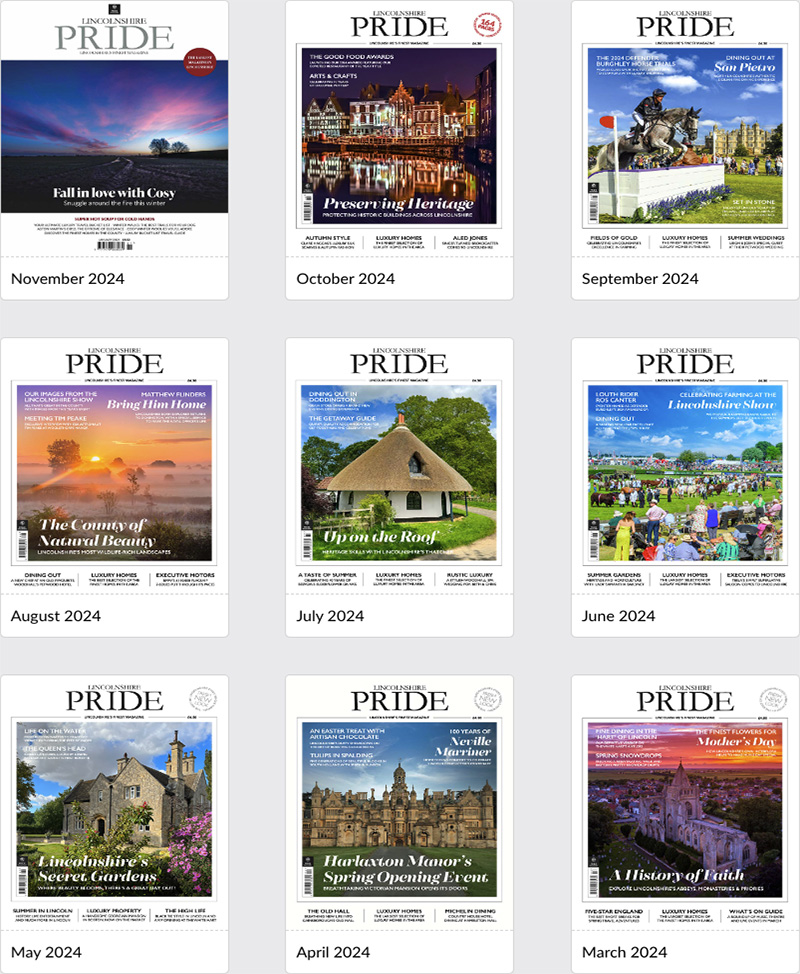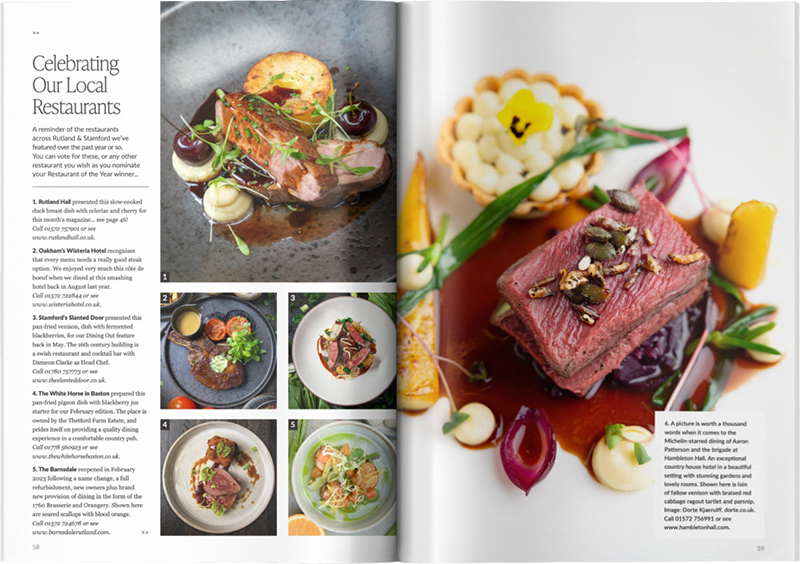
Professor Jonathan van-Tam
For Boston Professor, Jonathan Van-Tam, providing medical expertise as Deputy Chief Medical Officer during 2020 has been an unprecedented challenge. But how do you make the transition from academic to national hero? To find out, we enjoyed an exclusive interview with Jonathan at a time when close monitoring of the nation’s health is more important than ever…

It’s March 2020 and Professor Jonathan Van-Tam is in Downing Street, gearing up for an important meeting. With only a slight sense of trepidation he reaches his hand out to say hello. Happily, Larry is receptive. The brown and white tabby, a Battersea rescue moggy who holds the title of Chief Mouser to the First Lord of the Treasury, has been a resident of No. 10 since 2001.
Larry’s reputation as a good judge of character is formidable, and political folklore has it that a successful greeting from him is tantamount to an overarching blessing in politics.
“I think he sensed that I’m a cat lover,” says Jonathan. True to form, Larry’s endorsement of Jonathan was spot on. In a few short months we’d all know the Professor’s face from TV press briefings, and look to Jonathan, as one of the UK’s three senior medical advisors, to provide expert advice to the population and to politicians, allowing them to create the policy which would guide the country through the ensuing pandemic.
Jonathan was walking through the famous black door for the first time despite having served as the UK’s Deputy Chief Medical Officer since October 2017. An academic with a long-standing specialism in infectious diseases – specifically influenza – Jonathan recalls that just a month before his visit to Downing Street he was still delivering lectures to his postgraduate students, teaching preparedness for a likely pandemic outbreak and told his students this was a pandemic.
Jonathan was raised in Boston and still lives in the county, commuting back and forth to London and to Nottingham where he still holds an academic post – currently reduced to one day a week – publishing 8-9 research papers a year and supervising postgraduate students. But Jonathan has very quickly had to trade the relatively anonymous dignity and calm of academic life to instead become one of the most recognisable faces on the frontline of the country’s fight against Covid-19. So recognisable and so popular he is that he even has a Facebook appreciation group in his honour.
Are you a member of the group?
No! I understand there are memes and songs about me which have gone viral online… but I’ve been more occupied dealing with other things that have gone viral this year. I’ve a daughter aged 22 and a grown up sister who think it’s all quite hilarious and keep me posted. People have been saying largely kind things about me, even on social media, and it’s lovely when people say nice things, but that’s sometimes transient and I know that not all the advice we give is easy or popular.
People are less complimentary about politicians…!
My job is to be honest, objective and (as I see it) to speak the truth to power, and that’s an approach which has served me well. I’m not daft though; I recognise that there’s going to be an economic cost to society following the pandemic. The government was ultimately faced with the unenviable decision of harming the economy to save lives.
That was never going to be an easy path to take. Some have questioned the decisions the government has made but with the benefit of hindsight (and of course, hindsight by its very definition isn’t available at the time you have to make those tough decisions!) I don’t believe any government anywhere in the world has found this easy.
Ever since joining the government I’ve come to realise that everyone involved from junior civil servants to ministers are incredibly bright, very articulate, genuinely motivated, and really determined. They’ve done astonishing work under the kind of pressure that many can only imagine.
Have the government taken your advice on board?
Academics deal in data. As a doctor and an advisor, I don’t get involved in making policy decisions – only advising on which ones make the best sense scientifically and clinically. It’s my job to present options and offer solutions based on data and science which the policy officials can then decide to submit to ministers and the ministers can decide on. I’m concerned exclusively with public health, science and medicine, but the government has to take into account a whole load of other considerations. It’s an unenviable position to be in.
Have you had any bad feedback?
There was just one incident. I was walking around Westminster and one passer-by recognised me. She hissed ‘shame on you,’ as she walked by. I suppose there was also the 30th of February [laughs]! The public has been scared by the virus, and how it has changed the country and their lives. That’s what I put it down to. Aside from that I think the public have been largely accepting of how sensitive the situation remains and appreciative of the difficult position the government finds itself in with no painless choices available.
How did you become a part of the government’s team?
From Boston’s Grammar School I trained as a doctor at Nottingham University and spent five years working in clinical medicine in a hospital environment before my public health training. I had been mentored by Professor Karl Nicholson (Leicester) who was a great doctor and was also very active in research; he got me into influenza. He’s largely retired now but remains a great authority on influenza and respiratory viruses.
After my public health training, I became a Senior Lecturer in Nottingham and at the same time also a Consultant Regional Epidemiologist at the Public Health Laboratory – the distant forerunner to Public Health England. I also spent time after that working in the pharma sector at SmithKline Beecham and for Roche, which produces influenza drugs like Tamiflu.
I undertook a role at Roche as Head of Medical Affairs and then joined Aventis-Pasteur MSD, at the time Europe’s largest vaccines company, before returning to the public health sector in 2004 at the UK Health Protection Agency as head of its Pandemic Influenza Office.
In 2007 I returned to the University of Nottingham as Professor of Health Protection – I wanted to get back to research. I was also on the committees like SAGE and NERVTAG and was Editor-in-Chief of the journal Influenza and Other Respiratory Viruses.
I was offered the position of DCMO in October 2017, academically aware that another pandemic-level event was probable, even though we’d had ‘swine flu’ in 2009… but not anticipating such a severe one in my working lifetime.
What’s so fascinating about influenza and respiratory viruses?
People use the terms bacteria and viruses interchangeably. Bacteria are single cell organisms, larger than viruses. They are susceptible to antibiotic medicines. Viruses meanwhile can’t be treated with antibiotics and antiviral drugs are fewer and much harder to use successfully. Viruses attach and enter host cells, taking them over completely, and are much smaller.
Viruses aren’t sentient but they do occupy that grey area between living and inanimate things. They are programmed to survive and multiply, they’re adaptable and they mutate which makes the field of research and disease control challenging.
The societal implications of a pandemic-level outbreak are potentially huge, which is another dimension to an already fascinating area of research and another reason that doctors and the government should work together in the event of a pandemic.
What is the role of a Deputy CMO?
There are two DCMOs, both working under Professor Chris Whitty, the CMO, who has overall responsibility for advising the UK government on health matters. My colleague Dr Jenny Harries is usually concerned with longer-term healthcare; issues pertaining to diet and exercise for example.
But of late she’s her work has had to be 100% Covid-19. My specialism has always been communicable diseases, pandemics including influenza and vaccines. So I always knew that a pandemic-level event, if it happened whilst I was at DHSC it would fall under my jurisdiction.
How much warning did we have?
We knew there was an issue in China in early January but we had so little data to work from. We always knew that we could utilise non-pharmacological interventions in the event of an extreme pandemic-level event. These included vigilant handwashing, social distancing, face coverings, school closures and ultimately… isolation in households, as unfolded during our period of lockdown.
What makes Covid-19 so tricky?
Global pandemics aren’t unprecedented, but this is the first known coronavirus pandemic. In 2003 SARS was identified and from 2012 MERS has been affecting the Middle East. These are both coronaviruses too, but their periods of communicability are different.
That’s the time during which an infectious agent may be transferred directly or indirectly from an infected person to another person.

In the case of SARS and MERS, the period of communicability occurs later in the illness, when someone may already be symptomatic, and already isolated.
By contrast, Covid-19’s period of communicability occurs earlier, often prior to symptoms. In other words, what makes Covid-19 so difficult is the fact that you may be oblivious to having it and unable to recognise the need to isolate until you have infected others.
By and large Covid-19 is nasty but not life threatening for most people; but this disease is also characterised by a more serious course in older age groups (those over 50) and people with underlying illnesses and many require hospital care and oxygen. This disease is also very much more contagious than even flu.
What will happen next as lockdown is eased?
The future is hopeful, but far from certain; Covid-19 is still in circulation now and could return in significant numbers in winter 2020 if we don’t stay alert and follow the advice. A number of vaccines are currently under development. I’m hopeful but not certain we’ll have some kind of a vaccine in production by the end of the year, but not at full volumes, so I don’t think the use of vaccines will provide a meaningful ‘public health result’ until about Easter; after that I’m hoping that their impact will be substantial.
I’d hope that spring 2021 will represent a new dawn for the country, by which time we’ll be able to live life fairly safely. Even so, moving forward, the way we live will change. Covid-19 won’t be eradicated anytime soon and we’ll have to learn to live with it to some extent. Maybe working from home will become far more common over the longer term in some industries.
What are you most looking forward post-Covid-19?
It’s well known that I’m a fan of Boston United. There was a flurry of interest as I wore my Boston United tie to a press briefing at the end of May and spoke optimistically about a time when we could once again follow our favourite teams.
Currently Boston is one of six in the National League North play-offs. They’re due to play in the semi-finals at the end of July and hopefully in the final on August 1st. I’m looking forward to the first time we can step through the gates into the team’s new ground later this year, hopefully as newcomers in the National League.
I enjoy living in Lincolnshire, it’s a great place to raise my two boys. My daughter has left home now and being the sort of person who likes to live his life quietly, I’m looking forward to a little normality. I think that’s a sentiment everyone can relate to.
Professor Jonathan Van Tam lives in Lincolnshire and was appointed to the role of Deputy Chief Medical Officer for England (DCMO) in October 2017.






